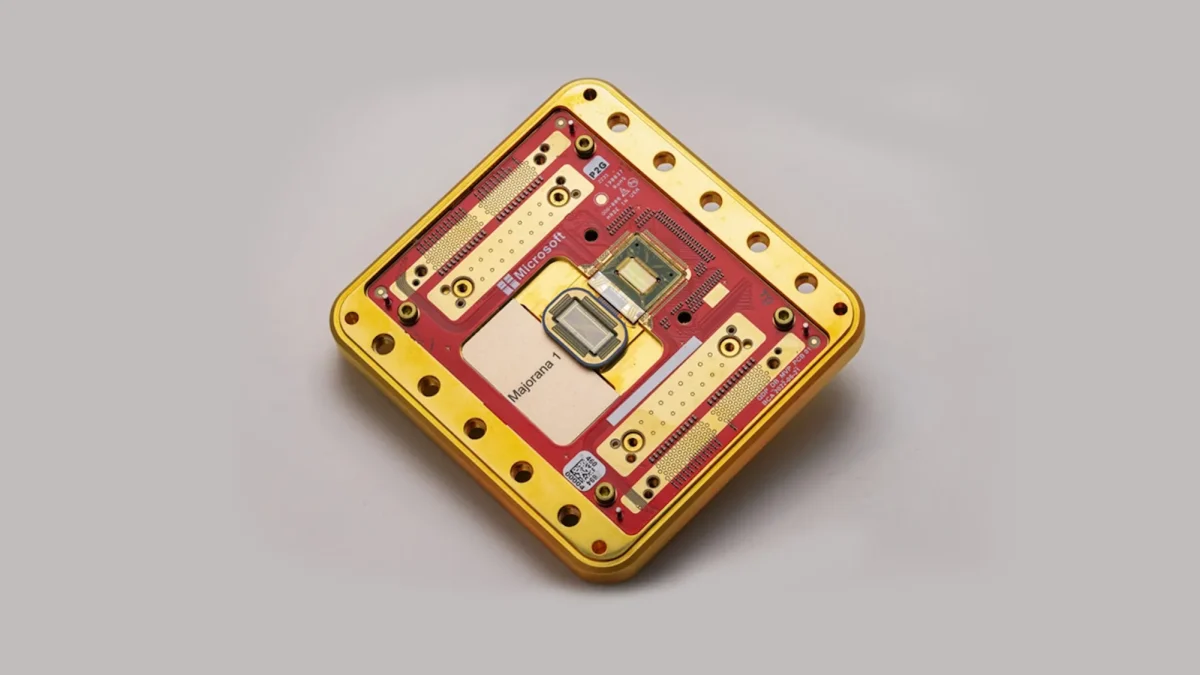Microsoft has just taken a huge step forward in the field of quantum computing that could change everything we know about computing, physics, and even the way we live our lives. They have unveiled a breakthrough quantum computer, and with it, they’ve also discovered a new state of matter that challenges our fundamental understanding of the universe.
To understand the significance of Microsoft’s new quantum computer, it’s important to know what quantum computing even is. Traditional computers process information as bits, which are either a 0 or a 1. These bits are the basic units of data, and every calculation is broken down into those 0s and 1s. Quantum computers, however, use something called quantum bits or qubits. A qubit is very different from a regular bit because it can be in a state of 0, 1, or both at the same time, which is known as a superposition. This gives quantum computers the ability to process information much faster and more efficiently than classical computers because information can now be stored in more ways than just a 1 or a 0. Quantum computers also take advantage of another principle called entanglement, where qubits become linked and the state of one can instantly affect the state of another, no matter how far apart they are. This creates massive potential for incredibly fast and powerful computing that could tackle problems impossible for today’s computers.
While creating their quantum computer, Microsoft has also discovered a new state of matter which they have dubbed topological matter. In traditional materials, particles like electrons move freely or interact with one another in predictable ways. However, in topological matter, the particles behave in more complex and less predictable ways, creating a “quantum glue” of sorts that holds the qubits together and keeps them stable. This new state of matter is what allows Microsoft’s quantum computer to function in such a powerful and efficient way.
The implications of Microsoft’s quantum breakthrough are huge, and they reach far beyond just building faster computers. Here’s a look at some of the exciting possibilities:
- Revolutionizing Industries: Quantum computers have the potential to transform industries like healthcare, finance, and manufacturing. For example, they could revolutionize drug discovery by simulating molecules in a way that classical computers can’t, speeding up the creation of new medicines. In finance, quantum computers could help optimize complex systems like stock trading or risk analysis.
- Solving Unsolvable Problems: There are problems that are simply too complex for today’s computers to solve. With quantum computing, we could make breakthroughs in areas like climate change modeling, understanding the universe, and even artificial intelligence. The ability to process information faster and more efficiently will open up new ways of solving some of the world’s most important challenges.
- Cryptography and Security: Quantum computing could change the landscape of cybersecurity. Quantum computers could potentially break traditional encryption methods, however, they could also lead to new, more secure forms of encryption, making data even more protected.
- A New Era in Computing: Quantum computing is expected to push the limits of what computers can do, opening up new doors in science, technology, and even art. As quantum computers become more accessible, we might see innovations in areas we can’t even imagine right now.
Microsoft’s quantum computer and the discovery of a new state of matter are truly groundbreaking developments. They represent a giant leap into the future of computing. While it’s still in the early stages, the potential is massive, and it’s clear that this breakthrough will play a huge role in shaping the future of technology.


